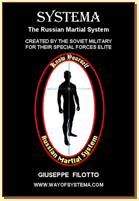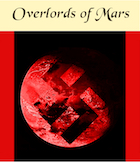If you don’t know that Sedevacantists are the only Catholics left, or don’t know what Sedevacantists are, you are obviously new here and I would suggest you use the search function on the right and read several posts on this blog.
For the rest of you, you may think this is the “usual” zealous Bible thumping.
Except I’ve never Bible thumped. Or been any kind of usual in my zealotry. So I hope you will take note of a few things, because they continually surprise me too.
Living in a Catholic manner certainly does not mean one does so perfectly. I certainly never meet anything close to that standard.
I tend to be a big picture guy with attention to detail, rather than a detail guy with a big picture idea.
Catholic thought is divided essentially into three parts:
Divine, immutable laws
Church rules
Lay people rules
The first are immutable and eternal. They will never change, because such is the nature of absolute truth, justice, beauty and love. Such is the nature of God insofar as we are able to comprehend it.
Church rules are in essence common sense rules of logic that have and can and do change from time to time. In the past usually as a result of the growth of the Church and thus needing a structure to manage it and serve the laity best. More recently, in light of the last six decades and change without a Pope, the rules of the Church are in many cases not even applicable and hence naturally revert back to those of previous eras when the Church was much smaller, as it once again is today, since only Sedevacantists are Catholics today.
The last are the rules for the laity, for you and me, and again, these are generally good, solid, common sense rules that when followed create the best society humanity has ever had to date.
The rules that apply to laity are confusing to some, because not all are divine and not all are immutable. The portion of rules for laity that comes from divine laws, are, of course, immutable, and others in fact do have even official exceptions for certain situations.
Yet others are treated as if there are no exceptions, and indeed are written as such, yet, the clergy know, some can be “broken” under certain situations and doing so in these cases might not even be a sin.
One example, and one I heartily counsel you to never, ever, ever break, is exorcism.
The rules are that only a priest who has been trained as an exorcist —-and rather extensively at that—- and who also has specific permission from his Bishop is ever to even attempt an exorcism. And then only if supported by a small but also highly trained people alongside him.
And yet, at times, priests and even lay people had to deal with demonic infestations of one kind or another, and some even managed to do so successfully. The rules strictly forbid it for good reason. Which is the preservation of your soul, because dealing directly with demonic spirits is really almost inevitably damaging and dangerously so. A layman trying to deal with a demonic possession is something like a layman trying to land the space shuttle manually with no training.
You wouldn’t let an untrained person do heart surgery. No one sane would. But it does not mean that the first heart surgery was done by a trained doctor. In fact, I have been told by a person that worked with him, that Barnhard himself admitted the guy who did the first one was a black man that Barnhard had allowed to do surgery on cadavers. So he was trained, but he was the hospital’s gardener, and black, under apartheid. So he certainly wasn’t a doctor.
Life is often stranger than fiction. Look at the Saint Joan of Arc. I mean, ok, it was Frenchmen after all, but still, a little girl did for France what all her noblemen and their armies could not.
Yet, if you look at the devout believers, whatever their class, and the realities and communities they create, Catholic rules produce incomparably orderly, pleasant, beautiful, just communities. The problem are not the rules, but how far we have fallen from them.
And the most important rules are the ones relating to family, because as Pope Pius XII wrote in his Mystici Corporis, ultimately, the Catholic family is the bedrock on which Catholicism is founded.
And that bedrock is founded first of all on the relationship of the man and woman that go on to create that family.
The rules of relation between husband and wife in Catholicism are unique to it. The Protestants have perverted it, as they did everything. The Pagans never had any rules worth saving, in the main, with the only possible exception being the Japanese.
Who today even knows what those rules are? Or even just what the mainstays, the pillars on which the other rules may depend and build upon? Do you, anonymous reader?
Do you know?
Would you care to say what you think they are?
I am curious.







G wrote “Living in a Catholic manner certainly does not mean one does so perfectly. I certainly never meet anything close to that standard.”
And I am far from that standard myself.
However, I have met a couple men that were close to the standard. Not perfect, of course, but noticeably holy. The kind of holiness that distracts you from everything else around. It draws you in, so you want to hear what they have to say, and you respect their instruction, even though they are reticent to speak.
They are two priests from a monastic order. They served mass at the Cathedral where I was confirmed. These 2 men were amazingly devout and holy. It was incredibly inspiring. They served the most solemn masses I’ve ever witnessed, and that includes TLM.
I know priests and laymen like that. I’m just not one of them.
One the solemnity… don’t be fooled.
Solemnity can be faked and Novus Ordo masses are invalid blasphemies, and every Novus Ordo “clergy” has no excuse for “not knowing”. So are TLM masses that are una cum. If you join the name of a satanic heretic like Bergoglio to the Mass then, again, it is a sacrilege.
“Solemnity can be faked”
Of course, but when it goes hand in hand with holiness… well, by their fruits ye shall know them.
As for masses, it is difficult to put into words. My experience of the mass can and does vary, depending on the priest serving it. I just assume this is true for everyone, but maybe not. I cannot know someone else’s interior life.
Regardless of priest, the experience of a true Mass by a real (valid) cleric, is really quite different. And this sentiment is true across all sedevacantists I have known. I attended Novus Ordo Masses (without taking the host) and real ones (also without taking the host) before I was baptised, several times. They are qualitatively and perceptually different.
If you’re not gonna have a Pope anyway, why not be Orthodox?
I see that I will have to make a post about the retardation of this question as I have been doing for the inane Protestant ones.
Just because no valid Pope exists now, does not mean that:
1) One cannot exist in the future
2) That the Catholic position is not infallibly correct, as it in fact is
3) that the “Orthodox” are schismatics and heretics
The Truth is not a popularity context. you would know that if you could do math or had read your Bible.